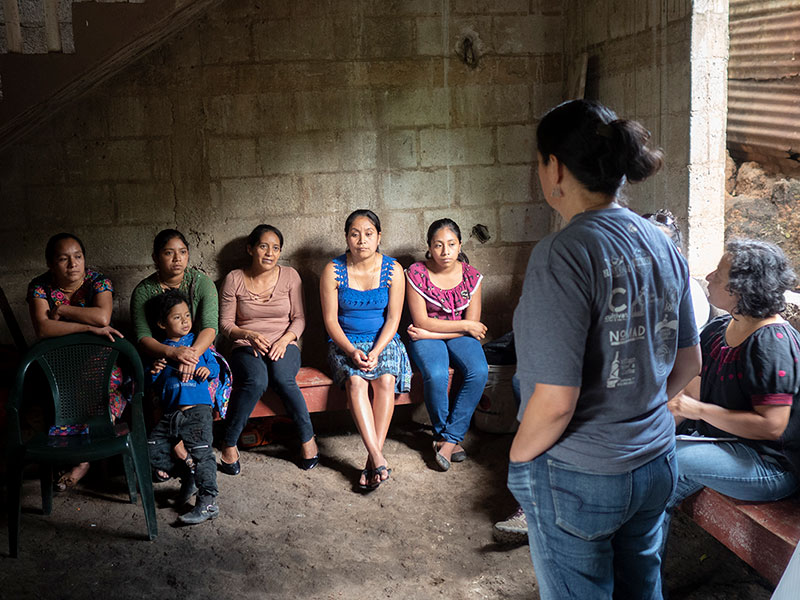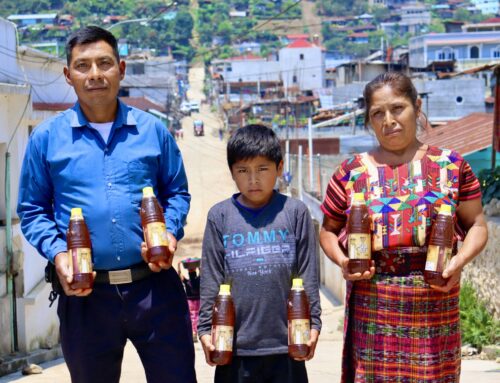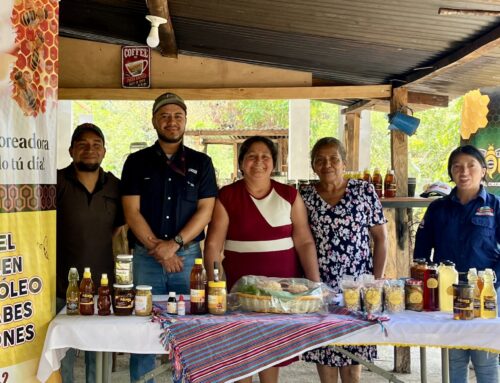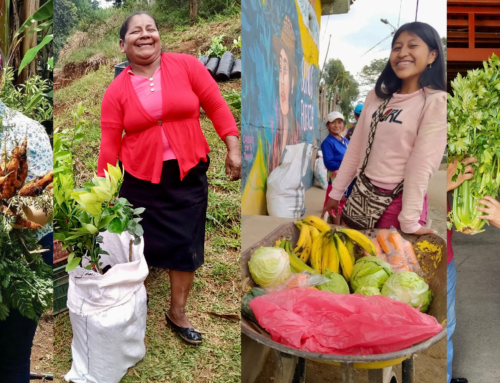Food and the way it’s produced has a dramatic impact on the environment, biodiversity, and food security. Overreliance on input-intensive agricultural systems has left budgets stretched, the environment battered, and farming families hungry. The time for ‘transFARMation’ is now.
(This story is featured in our Annual Report. Download & read the full report here.)
Most coffee farmers are predominantly dependent on a product that provides inadequate income, yet they lack the resources needed to invest in alternatives. Even though the cooperatives we work with produce Fair Trade, organic certified coffees, most have insufficient land to produce enough to achieve a dignified livelihood.
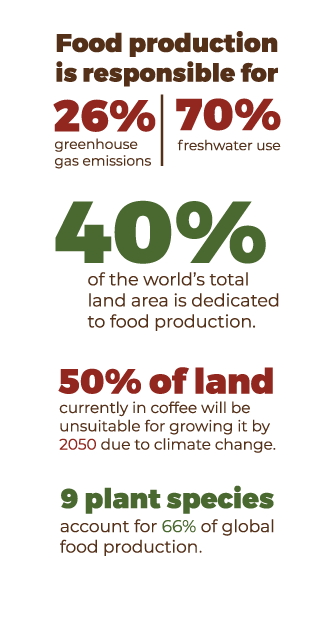
The small-scale coffee-farming families we work with – along with millions of others – live on as little as $0.50 per person per day, far below the Global Poverty Line of $1.90. Last year in Guatemala, the annual food costs for a family of five were $5,616, according to the Instituto Nacional de Estadística Guatemala. The farming families at Maya Ixil reported an average net income from coffee of just $900.
To make up some of this gap, many farmers must leave their communities to labor on large farms and in cities, or seek work in the U.S. Even in Colombia, considered a middle-income country, coffee farmers are not able to cover their production costs and feed their families. In our partner communities there, 30% of families have been unable to meet their basic food needs.
The time for TransFARMation is now
Coffee farming is in dire need of ‘transFARMation.’ We believe coffee farmers are central to ensuring enough healthy, sustainable, locally-produced food in rural communities. Good food can boost income, support climate resilience, and improve health. A sustainable local food system delivers adequate food for all, without expanding the farm’s footprint.
Sustainable local food systems mean protection of biodiversity and reduced water use, lower methane and nitrous oxide emissions, and prevention of nitrogen pollution and phosphorus loss.
This ‘transFARMation’ at the heart of our approach is based on education and behavioral change. We work alongside farming families to transform monoculture coffee-dependent farms into thriving, diversified local food and economic hubs while continuing to produce coffee.
We help farmers grow food organically, educate families and students about food security and nutrition, and provide business planning to build their capacity to support local food systems and economic growth. Our agroecological approach bolsters farm agrobiodiversity to improve the health of people, pollinators, and planet.
In Nicaragua and Colombia, local produce sold in farmers markets is supplanting highly-processed, nutrient-deficient foods with fresh, organic food grown by coffee farmers.
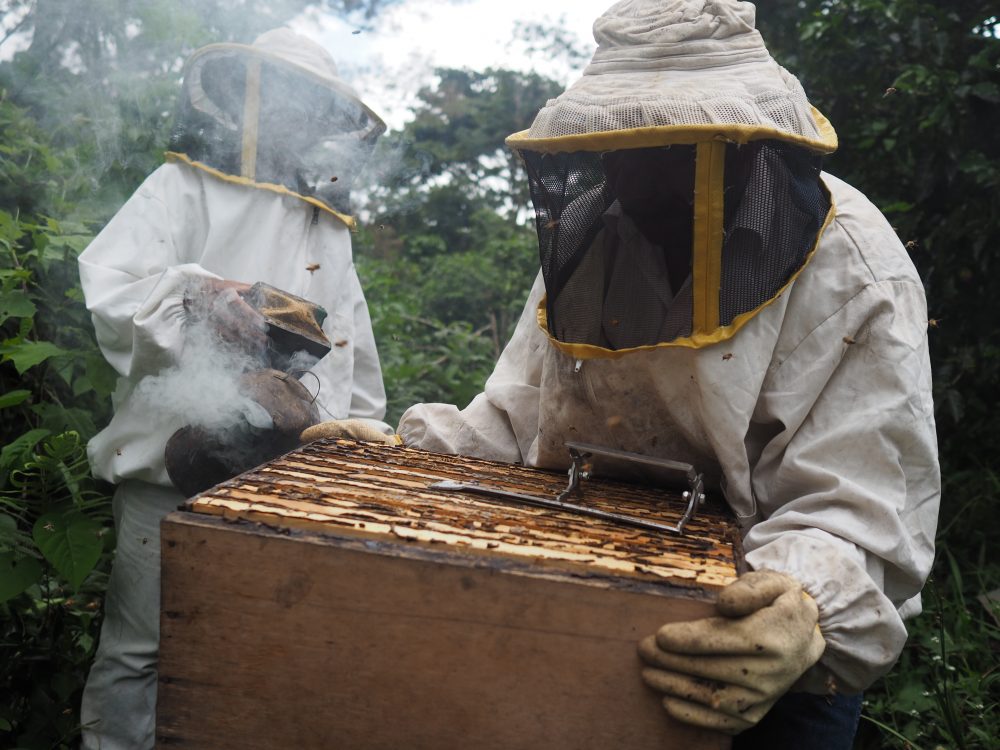
Beekeeping in Guatemala and Mexico is creating new on-farm businesses that generate income, provide pollination services, and support a diverse range of food crops alongside coffee, reducing pressure on forest systems.
A return to food and farming traditions in Colombia and Guatemala nurtures fragile ecosystems around coffee farms and instills community pride.
Shifting the world’s approach to agriculture requires hard work, time, patience, and relentless determination. No one knows more about these things than coffee farmers.
Cultivation of women and young people as local leaders is encouraging healthier diets and climate-smart farm practices that support quality of life and a healthier planet.
Shifting the world’s approach to agriculture requires hard work, time, patience, and relentless determination. Nobody knows more about these things than coffee farmers.
Strategic on-farm income diversification can solve a multitude of problems. It improves farming families’ ability to stay together. It creates opportunities for the next generation to close the economic gap coffee farmers experience due to the widening chasm between income from coffee and cost of living.
Most important, it brings better nutrition close to home, reducing the need for outsourced, processed food, while planting the seeds of stronger local food systems, economies, and families who can thrive independently.
(This story is featured in our Annual Report. Download & read the full report here.)

